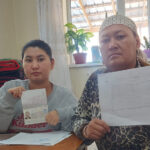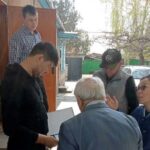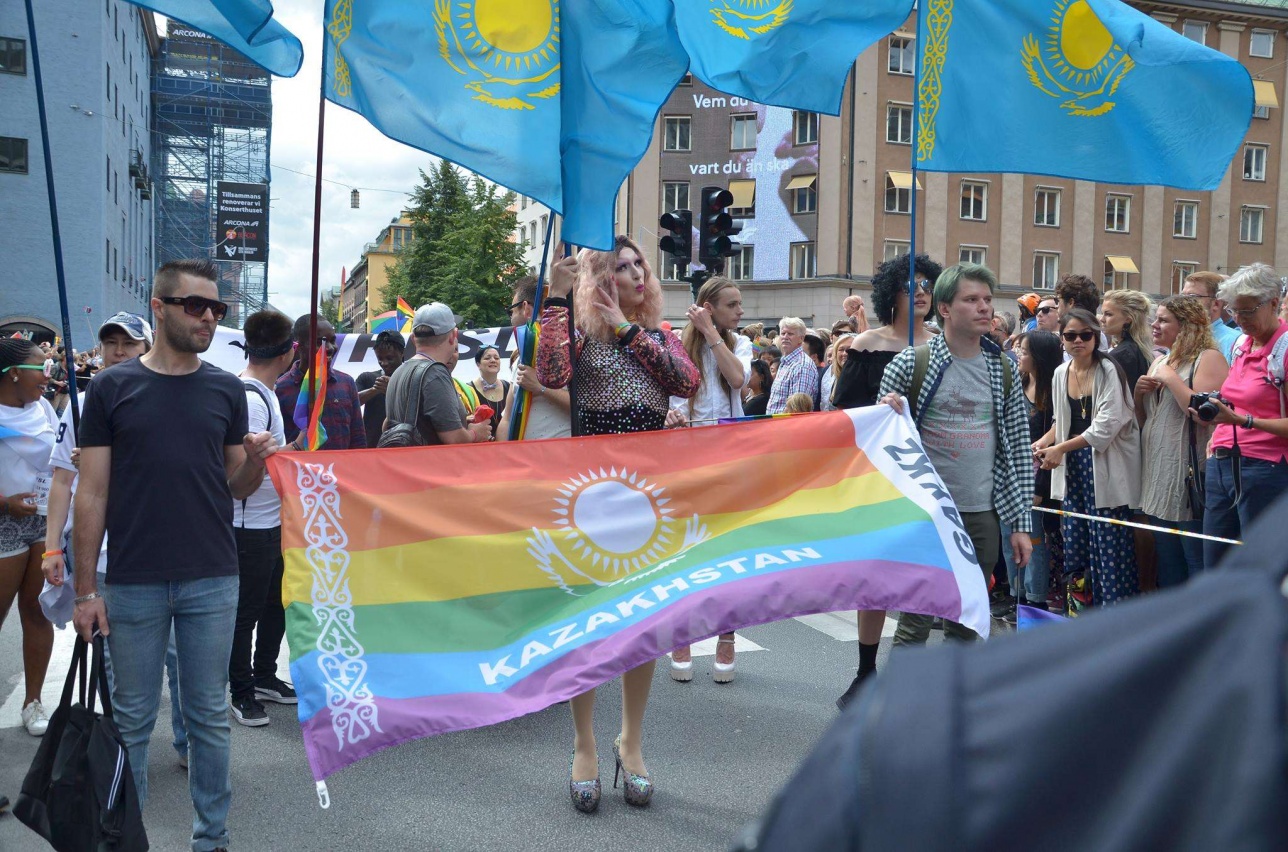In the coming days, the CIVICUS Monitor will post a special three-part series on current threats to civic space in Kazakhstan. This series analyses recent developments and threats – in law and practice – to respect for the fundamental freedoms of association, peaceful assembly and expression.
In this first part, we focus on the freedom of association and discuss the latest legal and practical developments related to NGO regulation, reporting, taxation and foreign funding. Information for this special series was provided by our research partner the International Partnership for Human Rights and the Kazakhstan International Bureau for Human Rights and Rule of Law.
Association
In a trend seen across the former Soviet Union, in Kazakhstan the space for independent civic, religious and political engagement has been shrinking in recent years. As described below, NGOs have been subjected to growing pressure, independent trade unions have been denied registration and religious minority communities face ongoing intimidation and harassment. Human rights defenders fear that the recent establishment of a new ministry on religion and civil society issues, in accordance with a presidential decree from September 2016, could result in a further increase of state control in this area. Meanwhile, opposition political parties have been marginalised and no true opposition political party is currently registered in Kazakhstan.
NGO LEGISLATION
By law, it is compulsory for public associations to register with the authorities and involvement in unregistered associations is criminalised. The activities of registered public associations may be suspended or terminated by court for any violation of national law, no matter how minor.
New NGO legislation that entered into force in December 2015 was widely criticised by civil society prior to its adoption, due to concerns that it would result in undue interference in the activities of NGOs. It grants the authorities broad new powers to oversee NGOs and provides for the establishment of a new government database on organisations in the sector. Under the law, NGOs are required to provide information about their organisations and activities to this database on an annual basis. If they fail to do so or provide “incorrect” information, they may be fined or have their activities suspended for three months. The new reporting requirement adds to extensive reporting obligations that previously existed for NGOs and is discriminatory because it only applies to NGOs and not other types of legal entity. Questions have also been raised about the resources needed to deal with the information submitted by thousands of NGOs for the database. The NGO International Legal Initiative (ILI) filed a lawsuit challenging the new reporting requirement, but lost in court. ILI was subsequently subjected to a tax check it believes was related to its engagement against the new NGO legislation (see below for more on this).
While the first deadline for reporting information to the new government database expired at the end of March 2016, this information is still being processed. In January 2017, the new minister of religious affairs and civil society stated that additional funds were needed to bring the new database into operation. He also said that so far only about 2,500 out of a total of over 18,000 NGOs in the country have registered for the database and that efforts to get NGOs to register are being stepped up.
Amendments to the Tax Code that entered into force in October 2016 introduced other new reporting obligations for NGOs, this time for organisations receiving foreign funding for certain types of activities. According to these amendments, all individuals and organisations receiving any amount of foreign funding for the provision of legal assistance, public opinion studies or information gathering, analysis or dissemination are now required to report the receipt of these funds to the tax authorities. Failure to comply may result in fines. A public database will be created on the website of the Ministry of Finance on the basis of the information received. The new provisions create an additional reporting burden for NGOs already regularly reporting to tax authorities about their finances. It is also problematic that the new requirements apply specifically to foreign funding received for certain activities deemed “suspicious” by the authorities, a provision which has given rise to concerns that the publication of reported information may
NGO INSPECTIONS
Several well-known human rights NGOs have recently been targeted by unscheduled, intrusive inspections by tax authorities. Following several months of inspections that ended in December 2016, the Almaty-based NGOs Liberty and ILI were fined about 7,000 and 3,500 EURO respectively for allegedly failing to pay corporate income tax on grants received from foreign donors, although these grants were tax exempt according to the applicable provisions of national tax legislation. According to Liberty, tax officials failed to recognise a grant received by this organisation from the European Commission as a grant from this donor, although it provided all relevant documentation to prove this. Both NGOs consider the fines imposed on them politically motivated and have announced that they will challenge them in court. A tax inspection of the Astana-based NGO Dignity was still under way in mid-January 2017.
In a joint statement, several dozen Kazakhstani NGOs condemned the pressure put upon these three human rights NGOs and said that they consider the decisions to oblige Liberty and ILI to pay corporate tax unlawful. They also expressed alarm that the inspections of the three NGOs were supposedly initiated on the basis of a complaint filed by a private citizen in response to an article published on the www.nur.kz website in July 2016. That article was entitled “How much do foreign foundations spend on training activists in Kazakhstan” and alleged that the three organisations later targeted by the inspections, as well as other foreign-funded human rights NGOs, are engaged in “political” activities that threaten the stability of the country.
DENIAL OF REGISTRATION OF TRADE UNIONS
The 2014 Trade Union Law introduced stringent new registration requirements for trade unions, in particular by requiring mandatory affiliation of trade unions to broader structures. Among others, the International Labour Organization and the UN Special Rapporteur on the rights to freedom of peaceful assembly and association have criticised this law for violating the right of trade unions to freely organise.
Independent trade unions have experienced serious difficulties when attempting to register under the new law and have been denied registration on various pretexts. The Confederation of Independent Trade Unions of Kazakhstan (CITUK) finally obtained registration as a nation-wide trade union in February 2016, after struggling to do so for months. However, in November 2016, the Ministry of Justice initiated a liquidation lawsuit against the organisation, arguing that it had failed to confirm its status under the 2014 law, which requires nation-wide trade unions to have branches in more than half of all territorial entities of Kazakhstan. Many CITUK branches have not been able to obtain registration. On 5th January, a court in southern Kazakhstan ruled to close down CITUK. In a press release, the organisation said that the court did not allow it to present its objections to the charges and handed down the decision the day after the trial started. An online campaign has been started in support of the trade union.
HARASSMENT OF MINORITY RELIGIOUS COMMUNITIES
The Kazakhstan International Bureau for Human Rights and Rule of Law (KIBHR) has documented a pattern of discrimination, stigmatisation and harassment of religious minority communities under the 2011 Law on Religious Activity and Religious Associations. The law provides for serious restrictions on basic religious activities such as worship, missionary activities and the distribution of religious literature. A package of anti-extremism and anti-terrorism legislation signed into law by the president in December 2016 reinforced some of these restrictions, including state censorship of religious books and materials.
The following is just one recent example of a case of concern regarding thetreatment of members of a minority religious community:
On 16th November, a court in Ust-Kamenogorsk fined each of three elderly women members of the Protestant Rodnik (Spring) church the equivalent of about 300 EUR for allegedly violating requirements of the law regarding the conduct of religious rites and ceremonies. These charges were brought against the church members after they visited a local hospice, where they spoke about their faith and prayed with patients who welcomed them to do so. On 7th December, the decision against one of the three women was upheld on appeal, while the appeals filed by the two other women were still pending at the end of the year.
SOURCE:

















